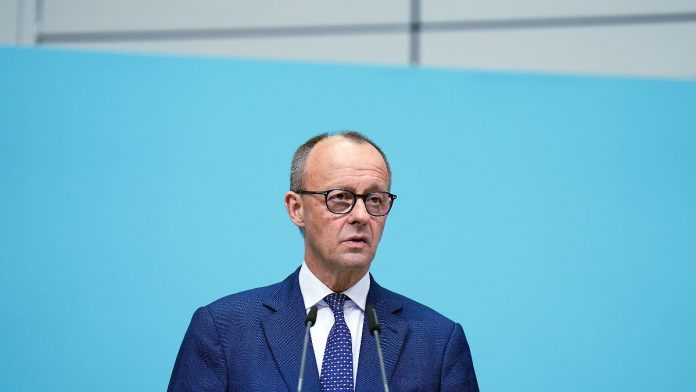The federal government wants to provide relief for companies to the tune of several billion euros per year. But the corresponding law is initially stopped by the family minister. Now the Union is blocking in the Federal Council. There isn't much left of the original project.
The traffic light coalition wants to breathe life into the German economy in view of the chronic weak growth. The so-called Growth Opportunities Act is intended to contribute to this, which, among other things, is intended to provide tax relief for companies. However, the project has still not been implemented and is therefore emblematic of the problems facing the federal government.
The bill is currently stuck in the mediation committee of the Bundestag and Bundesrat. A solution to the dispute will be discussed there in the evening. After parliament had approved, the proposal was stopped in the state chamber – among other things because states and municipalities were supposed to cover a large part of the shortfall in tax revenue. Now the Union is blocking the plans. She only wants to agree if the SPD, Greens and FDP withdraw the gradual elimination of agricultural diesel subsidies for farmers. However, the deletion is not part of the law.
The Union's actions are reminiscent of the blockade of Gerhard Schröder's Agenda 2010. The states led by the CDU and CSU blocked it in the Federal Council for a long time – for party tactics, not for substantive reasons. The CDU and CSU would also have to wave through the Growth Opportunities Act based on their statements. But so far she has not let herself be softened by even business associations, which are urging the federal and state governments to finally pass the law. In view of the weeks of farmers' protests, the desire to further damage the traffic lights is too great.
But it's not just the Union that is taking the project hostage. Lisa Paus did that first. The family minister blocked the law presented by FDP Finance Minister Christian Lindner in the cabinet last summer. The Greens thus forced higher funding for basic child welfare and caused new disputes in the coalition.
The draft law was passed by the Bundestag last November – but was subsequently stopped in the Bundesrat. The coalition is dependent on votes from Union-led countries to pass it.
Centerpiece painted
Over the long journey, the original plan has been slimmed down considerably. Instead of almost 7 billion euros as planned, the law only provides for annual relief of 3.2 billion euros. This meets the concerns of the states: They had complained that the law was tearing too big holes in their budgets and those of the municipalities.
However, the investment bonus – the heart of the original law – was deleted. This bonus should support companies in switching to climate-friendly business. The law at least includes tax incentives to stimulate struggling housing construction. In order to promote investments, companies should be able to write off certain costs more effectively for tax purposes.
Leading economists consider the projects to be too small given Germany's chronic weak growth. Economist Ulrike Malmendier told “Spiegel” that she would have liked a bigger impact, “especially a greater reduction in the bureaucracy of companies.”


